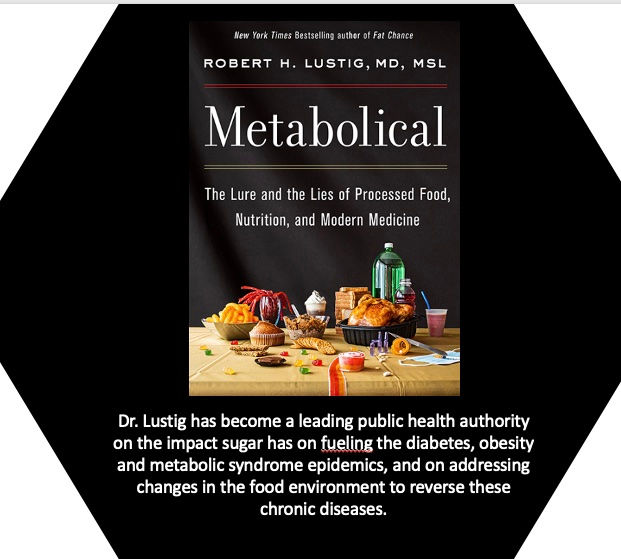Processed food isn’t just toxic, it’s addictive with Dr Robert Lustig M.D
- Professor Selena Bartlett

- Apr 11, 2022
- 3 min read
The New York Times bestselling explains the eight pathologies that underlie all chronic diseases, documents how processed food has impacted them to ruin our health, economy, and environment over the past 50 years, and proposes an urgent manifesto and strategy to cure both us and the planet.
Dr. Robert Lustig, a pediatric neuroendocrinologist who has long been on the cutting edge of medicine and science, challenges our current healthcare paradigm which has gone off the rails under the influence of Big Food, Big Pharma, and Big Government. He insists that if we do not fix our food and change the way we eat, we will continue to court chronic disease, bankrupt healthcare, and threaten the planet. But there is hope: this book explains what’s needed to fix all three.
On Episode #85 of the Thriving Minds podcast, we discuss his books, Fat Chance and Metabolical: click the link here.

• Medicine for chronic disease treats symptoms, not the disease itself • Chronic diseases are not “druggable”, but they are “foodable” • Processed food isn’t just toxic, it’s addictive • The war between vegan and keto is a false war—the combatants are on the sameside • Big Food, Big Pharma, and Big Government are on the other side

Dr Lustig on the Thriving Minds podcast recording. We met when I was working at UCSF in 2009.
Dr Lustig discusses on the podcast that certain foods — “hyperpalatable foods” — particularly processed foods that are high in sugar, salt and fat can be addictive. Food addiction is still a controversial concept in the scientific community. But researchers find strong evidence that certain foods can trigger binging, craving and withdrawal, responses that are similar to those produced by addictive substances like alcohol, cocaine and tobacco. He makes the case that food is the only lever we have to effect biochemical change to improve our health, Lustig explains what to eat based on two novel criteria: protect the liver, and feed the gut.
Dr Lustig discusses that "Non-communicable diseases (NCDs) account for about 50% of the global disease burden and some 75% of total health-care spending. The role of processed foods in these chronic conditions is undisputed; every country that adopts the high-fat, high-sugar “Western pattern diet” is plagued by the same diseases and costs. But the big question for health professionals is whether the quantity or the quality of foods is to blame. This is an important distinction, because quantity is determined by the user, while quality is determined by the industry. Some health experts argue that specific components of processed foods – in particular, sugar – are as addictive as cocaine and heroin. For example, sugar is consistently the ingredient with the highest score on the Yale Food Addiction Scale, which measures people’s food cravings. Not everyone who is exposed to sugar becomes addicted; but, as with alcohol, many do. While refined sugar is the same compound found in fruit, it lacks fiber and has been crystallized for purity. It is this process that turns sugar from a “food” into a “drug,” allowing the food industry to “hook” unsuspecting consumers. The evidence is visible in every aisle of every grocery store, where a staggering 74% of all food items are spiked with added sugar. In fact, sugar’s allure is a big reason why the processed food industry’s current profit margin is 5% (up from 1%), and why so many of us are sick, fat, stupid, broke, depressed, and just plain miserable".
Dr. Robert Lustig is Professor of Pediatric Endocrinology at the University of California, San Francisco. Dr. Lustig has become a leading public health authority on the impact sugar has on fueling the diabetes, obesity and metabolic syndrome epidemics, and on addressing changes in the food environment to reverse these chronic diseases. In his New York Times best selling book Fat Chance: Beating the Odds Against Sugar, Processes Food, Obesity, and Disease, Robert documents both the science and the politics that have led to the current pandemic of obesity and chronic disease. In the Fat Chance Cookbook, Robert provides practical examples for applying healthy eating principles with recipes by Cindy Gershen.








Comments